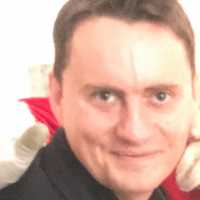 Medisense watches... HIV and Me
Medisense watches... HIV and Me
Blogger Nathan reviews the Gareth Thomas' documentary 'HIV and Me' and explains some of the stigma around HIV.
 Medisense watches... HIV and Me
Medisense watches... HIV and Me
Blogger Nathan reviews the Gareth Thomas' documentary 'HIV and Me' and explains some of the stigma around HIV.
 Medisense reads... Past Mortems
Medisense reads... Past Mortems
If you're looking for something to read while you lounge in the sun, check out our review of Carla Valentine's Past Mortems! Perhaps your next summer read?
 Medisense reads... Seven Signs of Life
Medisense reads... Seven Signs of Life
Need a break from revision? Pick out some extra-curricular reading with Hannah's review of Seven Signs of Life by Aoife Abbey.
 Medisense reads... Blueprint
Medisense reads... Blueprint
We have more medical literature reviews for you, with Blueprint by Robert Plomin reviewed by Hannah!
 Anti-vaxxers: Take two
Anti-vaxxers: Take two
Eliot takes another look at the controversial anti-vax movement!
 General Observations: Anti-vaxxers – healthy debate or health debacle?
General Observations: Anti-vaxxers – healthy debate or health debacle?
Here's the latest in our General Observations series- some thoughts on the anti-vax movement from Hannah.
 International Women's Day!
International Women's Day!
On #IWD2019, blogger Jess reflects on the role of women in the world of medicine.
 Medisense reads... With the End in Mind
Medisense reads... With the End in Mind
As medicine hovers the line between science and art, the 'art' side of CPD is often left unrecognised. Check out our new series on medical literature, starting with Kathryn Mannix's With the End in Mind!
 Exciting Etymology: What do bile and stars have in common?
Exciting Etymology: What do bile and stars have in common?
Etymology expert Hannah is back with some more medical word trivia for you to whip out next time there's an awkward silence on a gastro ward round!
 Tips from the Team: Keeping Down the Cost of Your Elective
Tips from the Team: Keeping Down the Cost of Your Elective
Whether you're just starting to think about your elective or practically have your suitcases packed already, there are ways you can save money at every stage of the process. Here are some suggestions from the Medisense team on how to keep your bank account happy:
 General Observations: Drunk Tanks
General Observations: Drunk Tanks
'Drunk Tanks' are big news at the moment, but are they addressing the bigger issues with alcohol consumption in the UK? Do they help hospitals? Check out blogger Alastair's thoughts...
 General Observations: Are GP waiting times really set to increase?
General Observations: Are GP waiting times really set to increase?
New blogger Victoria tackles a hot topic- GP waiting times- in our newest blog post!
 What do perfusionists (clinical perfusion scientists) do?
What do perfusionists (clinical perfusion scientists) do?
Who is that mysterious figure managing the cardiopulmonary bypass? There they are again with the ECMO! Guest blogger and Clinical Perfusion Scientist Chris takes us through the role!
 Intercalating in Medical Education
Intercalating in Medical Education
This week we're featuring the Masters in Medical Education (MMedEd) as part of our intercalation series. Check out Amy's experiences!
 Study tips 2: Revision essentials
Study tips 2: Revision essentials
The internet is full of advice to help you improve your focus, ‘crank out’ more work and increase your productivity, but you will already know that you should be taking regular study breaks, staying hydrated, doing exercise and avoiding the cycle of procrastination. What else can you do to learn medicine effectively and so reduce your work load?
 “Oh sorry, I’m just a med student…”
“Oh sorry, I’m just a med student…”
Medical students are widely regarded as a different species. The stereotypes - cut throat, super intelligent, socially privileged, work hard and party harder - go before us and make many medics (especially those more senior) reluctant to declare their role. Of course, all of us are hugely privileged to be in this position, but it can be a lonely and difficult place to be.
 Study Skills: Revision Tips from the Team
Study Skills: Revision Tips from the Team
Now for something a little different... the team of Medisense volunteers have combined their revision techniques and have some pearls of wisdom to share!
 “Public Health? I didn’t even go to any of the lectures!”
“Public Health? I didn’t even go to any of the lectures!”
Our intercalation series continues with Ellen's account of one of the less common intercalated degrees- the MPH. Check it out...
 Study Skills Part One: Take Note
Study Skills Part One: Take Note
Study skills are one of those things that need continuous development – as medics we’re always learning new things, and some methods work better for different information and circumstances. Below are a few humble suggestions on the subject of note-taking, to help you with whatever you're trying to learn this exam season!
 Intercalation: Catching the Entomology Bug
Intercalation: Catching the Entomology Bug
For a lot of people, doing an intercalation can be a great time to try something a little... different. For example, a year at the London School of Hygiene and Tropical Medicine! Read more about doing an MSc in Medical Entomology in our newest blog...
 Electives: Where on Earth to Begin?
Electives: Where on Earth to Begin?
The elective: considered to be one of the highlights of the medical school experience, but it can be difficult to know where to start, where to go, or how to plan the elective of your dreams whilst keeping the med school happy. Guest blogger Laura will help you tackle some of these questions!
 Mastering the Intercalation
Mastering the Intercalation
Considering intercalation? Academic hopeful Jess gives us the low down on the Masters by Research, the first in our intercalation blog series.
 Exciting Etymology – Obdormition and Paraesthesia
Exciting Etymology – Obdormition and Paraesthesia
They say a medical degree has more new words than a language degree. It's probably not true, but here's our medical dictionary corner resident Eliot with some medical words for you!
 Creepy Crawlies: The Tsetse Fly
Creepy Crawlies: The Tsetse Fly
In the first of this series on insect disease vectors, our resident entomologist Eliot talks us through the gory details of the Tsetse fly.
 Paramedics- more than an ambulance driver?
Paramedics- more than an ambulance driver?
Paramedics are often the first contact for patients in emergency scenarios, and are responsible for getting them stable and safely to hospital. But there is a lot more to their role, as student paramedic Jakob Schopen explains.
 The rise of the Physician Associate
The rise of the Physician Associate
Physician Associates- Who are they? What do they do? Where are they destined to go??? Senior nurse turned final year PA student Cheryl WIlliams demystifies the role for us...
 What do I need to know to be a good doctor?
What do I need to know to be a good doctor?
Good doctors know stuff. But what kind of stuff? Dr Luke Martin ponders what 5 years of school (and a lifetime of CPD) needs to achieve...
 Being Responsible with Opioids
Being Responsible with Opioids
Like a lot of things in medicine, opioids are a double-edged sword. On the surface they seem like a panacea of wonderful pain-free floatiness, but scratch beneath the surface and you find a world of irritations, side-effects and occasionally life-threatening problems. Thankfully, we’re here with a few tips on how to avoid pitfalls and keep your patients and your medical defence union happy!
 HPV vaccination: provocative or practical?
HPV vaccination: provocative or practical?
Vaccination against the Human Papilloma Virus has been in the news again- get the lowdown on the debate from blogger Nathan.
 Getting ahead in medical school
Getting ahead in medical school
Do you wanna be the very best, like no one ever was before? We can't help you catch 'em all, but here are some tips to be a stand-out medical student!
 'What has reflection ever done for us?': a reflection on reflection
'What has reflection ever done for us?': a reflection on reflection
Hopefully you've read Dr Jason Walker's fantastic blog post on 'reflection made simple'. Our reflection generator aims to make this come alive, to hopefully raise more debate about reflection. Whilst this is a fun April Fool's joke (please do not use this for your ARCP), we really do need to talk about reflection...
 Why should I care about medical research?
Why should I care about medical research?
Even if you have no interest in medical research, being up to date with recent guidelines and best practice is vital to being a good doctor! Jess Leighton gives us the lowdown on how to efficiently make sure your knowledge is current.
 Funny Bones: is humour a positive force in MedEd?
Funny Bones: is humour a positive force in MedEd?
Doctor doctor... I feel like I'm a pair of curtains...
Medicine has always been the subject of humour, and jokes are rife within learning tools in Medical Education. But what place should humour have for students, and should we be cautious about its use?
 The Devil’s Advocate: All doctors should be patients
The Devil’s Advocate: All doctors should be patients
The third in our series of blogs challenging the status quo, come take a trip down to meet with The Devil's Advocate as he argues the case that doctors should have experience of being patients.
 The Devil's Advocate: Peer learning is a waste of time
The Devil's Advocate: Peer learning is a waste of time
The second in our series of blogs challenging the status quo, come take a trip down to meet with The Devil's Advocate as he argues the case against peer learning.
 What even is academic medicine?
What even is academic medicine?
Ever thought about a career in academic medicine? Interested in research? Or have you ever wondered what that big pile of BMJs was for, other than to prop up your bookcase? Then look no further, as Jess Leighton's blog reveals...
 Injury Insider: Nightmare knees!
Injury Insider: Nightmare knees!
 Surviving and Thriving in a Foundation Junior Doctor A&E Job
Surviving and Thriving in a Foundation Junior Doctor A&E Job
Many of us hear 'horror stories' from colleagues and the media about working in A&E as a junior doctor. Tough rotas, high-stakes and work-life stress: is the nightmare a reality? Nat Jansen, an A&E F2, offers his tips on making the most of the job...
 Golden and Guilty? The medicine behind Doping in Sport
Golden and Guilty? The medicine behind Doping in Sport
The issue of doping in sport has been widely publicised, particularly in recent months, but what exactly is it? And what is the medicine behind it? Here we offer an outline of this hot topic and the challenges doctors need to be aware of...
 Reddit for Medicine: 10 Tips on getting started!
Reddit for Medicine: 10 Tips on getting started!
People talk about using 'SoMe' in Medical Education more and more every day: it's all the rage with the MedEd kids! Twitter and Facebook are pretty well explained out there on the world wide web. But what of Reddit: the 'front page of the internet'? How do we get started? Victoria Emerson provides a handy guide...
 Ideas, Concerns & Expectations of a Baby Junior Doctor
Ideas, Concerns & Expectations of a Baby Junior Doctor
Medical school teaches you a lot of things... but not how to survive out there in the 'wild' of the wards. In the first of a new series of blogs, Aidan Whitehead, a new FY1 doctor reflects on his first impressions of surviving on the job. It's a jungle out there...
 Out of the Question
Out of the Question
Final year medical student Peter Murray discusses his concerns about medical students being rushed into career choices. Why can't we live in the moment?
 ‘New MedEd’: building a doctor in a different way
‘New MedEd’: building a doctor in a different way
In an age where medical students are facing ever increasing pressures and greater challenges, Jonny Guckian asks whether the answer to all our learning problems lies in embracing our creative and critical sides…
 Beginners Guide: How the Internet Works
Beginners Guide: How the Internet Works
Working on a technology-oriented project invariably means that you have to occasionally talk about technology. And to start with this can cause a few issues for the technophobes. No the internet isn’t a little black box with a flashing red light (sadly), it’s a bit more complicated than that…
 The new junior doctor's roadmap: a reflection
The new junior doctor's roadmap: a reflection
Think about it. One moment, you're lying on a beach, enjoying the most glorious and successful summer of your life. Cocktail in hand, you don't have a care in the world. The next, you're curled up under a broken desk in some forgotten corner of a tumbled-down district general hospital, with a bleep shrieking at you and the thumping in your head shrieking even louder. What drug am I supposed to give Mabel in bay 3? What is the half life of diazepam? When is the next flight back to the beach? This is a transition that all junior doctors have to make - from apparent bliss one moment to responsibility the next. How do they cope? Laura Jones reflects on how she managed...
 The Devil's Advocate: "The Textbook is Dead"
The Devil's Advocate: "The Textbook is Dead"
In the deepest circle of #MedEd hell, lives the devil’s advocate. Thinking the unthinkable. Voicing your deepest and darkest thoughts about the world of medical education. In a first of a series of entries about challenging the status quo, why not take a trip with us down to meet him?
 Confessions of a Gunner: How not to be a wally on the ward
Confessions of a Gunner: How not to be a wally on the ward
You've all met that person at medical school. First to put up their hand for everything and have a season ticket for the front row of the lecture theatre. But how does the 'Gunner' stay professional in the ward setting?
 The Symphony CMS
The Symphony CMS
Working in web development, it's sometimes tempting to hack around with software packages to try and get something working. Medisense works with the Symphony CMS, a fantastic way to store and deliver content that keeps you sane in the meantime!